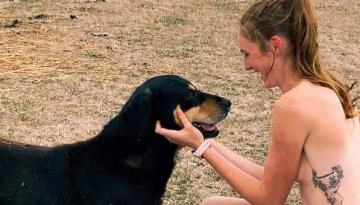With another potentially tough summer on the way, farmers are being urged to think ahead and have a plan in place to make sure their animals are well looked after in the coming months.
Many parts of the country suffered severe drought last summer, putting farmers under enormous strain.
And with some regions experiencing dry spring conditions there are concerns more drought could be on the way this year.
Dr Chris Rodwell, Ministry for Primary Industries (MPI) veterinarian and director for animal health, says 2020 was a "very, very challenging year" for farmers, and this summer could also bring tough conditions.
"Drought is still quite a concern for us," he told Dominic George on Magic Talk's Rural Today on Friday.
"We still need to be on guard and planning for what could eventuate in the ensuing months."
Dr Rodwell said La Niña conditions this summer meant it was possible parts of the south of the North Island and the South Island would experience further dry periods.
In order to protect the welfare of their animals, Dr Rodwell said it was imperative farmers have plans in place.
"In a nutshell, think about what you would need through the summer months, think about what you would need if you were going out into the great outdoors then plan for that in terms of your animals," he said.
The three main necessities for stock were shelter, water and feed, Dr Rodwell said.
Many farmers battled bare paddocks, hungry stock and limited supplementary feed due to the dry conditions last summer.
Dr Rodwell said MPI recognised farmers' needs and had set up food coordination and feed planning services.
"The coordination service is a bit like a dating service really, helping people that were running a bit short to connect the dots in terms of who can help provide them with a little bit more feed. And the feed planning service is to help you in the front end of that process, to plan for what you need to do."
He said in general, farmers were good at making provisions for their stock. But, he added, "there are a few that need a bit of help".
"The lifestyle sector can sometimes need a little bit of help for looking after animals in summer-type conditions, and we also know that small block holders are the same."
Animal welfare coordinators had been recruited all around the country to "provide support when the worst hit", Dr Rodwell said.
"Fire, flooding, drought, those sorts of things can obviously impact and hit various different parts of the country quite quickly and [the coordinators] are on the ground to hook into the Civil Defence and emergency management structures as and when needed - particularly around animal welfare."
More information about how to deal with drought can be found on MPI's website, or through local rural support trusts.


